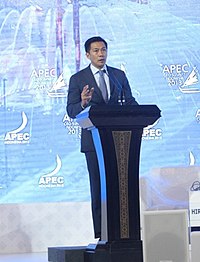
Group membership and racial bias modulate the temporal estimation of in-group/out-group body movements
Sign Up to like & getrecommendations! Published in 2018 at "Experimental Brain Research"
DOI: 10.1007/s00221-018-5313-4
Abstract: Social group categorization has been mainly studied in relation to ownership manipulations involving highly-salient multisensory cues. Here, we propose a novel paradigm that can implicitly activate the embodiment process in the presence of group affiliation… read more here.
Keywords: group; group membership; racial bias; bias ... See more keywords

Working hard and playing hard: multiple group membership, exercise and cognitive performance in boys and girls
Sign Up to like & getrecommendations! Published in 2019 at "Social Psychology of Education"
DOI: 10.1007/s11218-019-09483-9
Abstract: Participation in sport and exercise has been linked to enhanced academic performance, and though girls’ participation in sport is known to decline during adolescence, girls continue to outperform boys academically at school in many Western… read more here.
Keywords: group membership; performance; cognitive performance; group ... See more keywords

The effect of co-actor group membership on the social inhibition of return effect.
Sign Up to like & getrecommendations! Published in 2020 at "Acta psychologica"
DOI: 10.1016/j.actpsy.2020.103119
Abstract: Being part of a group is a crucial factor in human social interaction. In the current study we explored whether group membership affects reflexive automatic cognitive functioning, and specifically the social inhibition of return effect… read more here.
Keywords: social inhibition; group; effect; group membership ... See more keywords

One plus one is more than two: The interactive influence of group membership and emotional facial expressions on the modulation of the affective startle reflex
Sign Up to like & getrecommendations! Published in 2019 at "Biological Psychology"
DOI: 10.1016/j.biopsycho.2018.12.009
Abstract: It has been demonstrated repeatedly that the evaluation of a face is not only influenced by the social message that is signaled by the face's emotional expression, but also by other social factors such as… read more here.
Keywords: emotional expression; group membership; startle; group ... See more keywords

Children show economic trust for both ingroup and outgroup partners
Sign Up to like & getrecommendations! Published in 2021 at "Cognitive Development"
DOI: 10.1016/j.cogdev.2021.101077
Abstract: Abstract Trust is a critical aspect of human cooperation, allowing individuals to overcome the risks posed by such interactions because of others’ presumed cooperative inclinations. Adults sometimes mitigate these risks by preferentially trusting members of… read more here.
Keywords: trust ingroup; group membership; trust; economic trust ... See more keywords

The influence of group membership on young children's prosocial behaviour.
Sign Up to like & getrecommendations! Published in 2018 at "Current opinion in psychology"
DOI: 10.1016/j.copsyc.2017.08.005
Abstract: Young children can be extremely prosocial-willing to help and share with others and comfort them in distress. However, the origins of social problems like prejudice and discrimination also appear early in development. In this paper,… read more here.
Keywords: group membership; membership young; influence group; young children ... See more keywords

Differential environmental influences on the development of cognitive abilities during childhood
Sign Up to like & getrecommendations! Published in 2018 at "Intelligence"
DOI: 10.1016/j.intell.2017.11.005
Abstract: Abstract Twin studies have shown strong evidence that cognitive abilities are heritable. This longitudinal study examines genetic and environmental influences on distinct developmental patterns of verbal and non-verbal cognitive abilities from age 7 to 12… read more here.
Keywords: differential environmental; developmental patterns; group membership; cognitive abilities ... See more keywords

Children's expectations about conventional and moral behaviors of ingroup and outgroup members.
Sign Up to like & getrecommendations! Published in 2018 at "Journal of experimental child psychology"
DOI: 10.1016/j.jecp.2017.03.003
Abstract: Although children demonstrate robust social preferences for ingroup members early in ontogeny, it is not yet clear whether these preferences are based on children generally liking people who are more familiar or on children holding… read more here.
Keywords: outgroup members; group membership; ingroup members; children expectations ... See more keywords

Implicit evaluations of faces depend on emotional expression and group membership
Sign Up to like & getrecommendations! Published in 2018 at "Journal of Experimental Social Psychology"
DOI: 10.1016/j.jesp.2018.04.004
Abstract: Abstract Faces carry a lot of information influencing evaluative reactions, such as emotional expression, age, or group membership. Even though, typically, many of these aspects will be present in a face concurrently, only few studies… read more here.
Keywords: emotional expression; group membership; expression group; group ... See more keywords

Simulation: A strategy for mindreading similar but not dissimilar others?
Sign Up to like & getrecommendations! Published in 2020 at "Journal of Experimental Social Psychology"
DOI: 10.1016/j.jesp.2020.104000
Abstract: Abstract One proposed solution to the challenge of mentalizing is to use one's own mind as a model in a process known as simulation. Studies have demonstrated that people more strongly engage in simulation for… read more here.
Keywords: similar others; group membership; simulation; strategy ... See more keywords

Does the group membership shape evaluations on other drivers? The role of symbolic cues in traffic
Sign Up to like & getrecommendations! Published in 2019 at "Transportation Research Part F: Traffic Psychology and Behaviour"
DOI: 10.1016/j.trf.2019.04.016
Abstract: Abstract The present study investigated the effects of group membership on drivers’ evaluations of themselves and other drivers. An online survey was completed by 144 university students. As measurement, mini Driver Behavior Questionnaire (DBQ) with… read more here.
Keywords: group membership; evaluations drivers; traffic; identity ... See more keywords